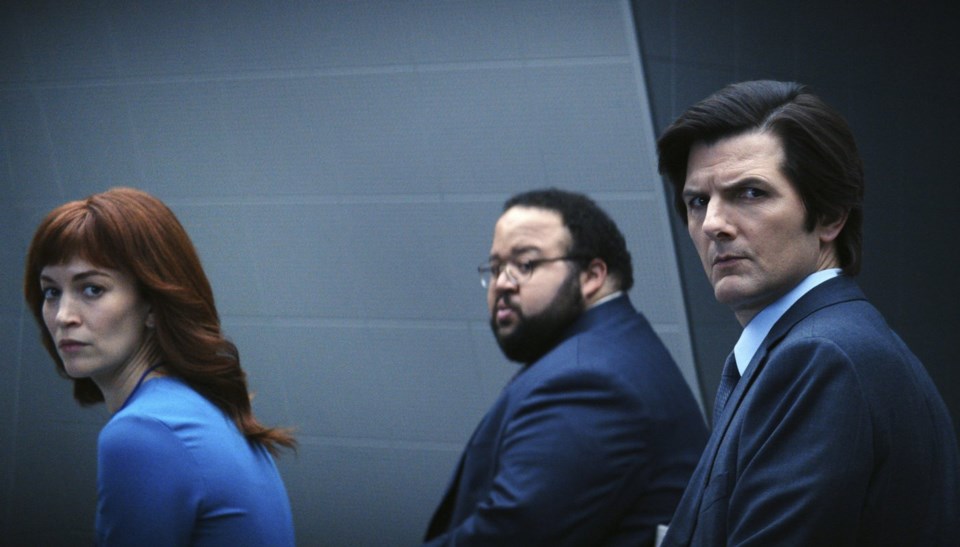LOS ANGELES (AP) ā āSeveranceā is beloved by critics and audiences alike. But there was a time when and who executive produces and directs the Apple TV+ series, worried it might never get made.
The show ā a dark, surrealist commentary on our work-obsessed culture that was hardly guaranteed to reap mass appeal ā was set to start production on its first season in March 2020. Then the lockdowns began.
two historic and a three-year gap between Seasons 1 and 2 later, Apple TV+ confirmed a third season Friday, the morning after the release of the second season's finale. Scott and Stiller spoke to The Associated Press in advance; the interview has been edited for clarity and brevity.
AP: Adam, was it challenging to get back into character after all this time?
SCOTT: Itās funny because I feel like I was kind of working on it the whole time. I mean, I guess doing press and talking about the character and the show is sort of keeping it kind of fresh in my mind the whole time. But also, Ben and Dan (Erickson, the show's creator, writer and executive producer) and I talk all the time and Iām always peppering them with questions about where things are going or what weāre doing. We were kind of always talking about it and kind of mulling it over the entire time so, by the time we started shooting, I did feel pretty prepped and ready to go in. But it was challenging because, like the show itself, the character ā both the āinnieā and the āoutieā ā kind of expand a little bit and the aperture sort of widens.
AP: So much time has passed since the first season. Did the arc of this season or your approach to any of it change from when you initially thought you were going to make Season 2?
STILLER: I mean, itās constantly in process. Thatās what the process of making the show was on Season 1 and also on Season 2. And I donāt know if I could explain the process, but itās very fluid, even though itās obviously a show that has a lot of specifics that weāre always trying to think about. Thatās, I think, one of the reasons why itās fluid actually, is because weāre always looking at what weāre doing and looking back at what weāve shot and edited and just really trying to track it. It goes on all the way through until the final sound mix, really.
AP: So, you start filming Season 2 and then the strike happened?
STILLER: Yeah. We started in October 2022 and we shot through until the strike and we had completed about seven episodes at that point. And then we had to regroup for the last three after the strike.
AP: Did you have to go back and reshoot any of it?
STILLER: In both seasons, we constantly go back and weāre always looking at stuff and sometimes weāll pick up something. But thatās part of the process of making the show. And one of the, I think, luxuries of being able to make the show like this is that weāre able to kind of look at what we made and go, āWait, you know, this doesnāt work,ā or āThat doesnāt work,ā or āLetās try this new idea.ā
So, any time weāve had delays, especially the first season we were in prep and were about to start shooting, then COVID hit so we had an extra six months to work on the scripts and all the other ideas that we were developing. And the strike, same thing. You know, we couldnāt write, obviously, but I was allowed to edit because Iām a non-writing producer on the show, so I edited throughout the whole strike period, which was really helpful when we went back in.
SCOTT: We were, of course, in full support of the strikes, both writers and actors. But yeah, for this show in particular, we were just like, āGood Lord. OK, letās close up shop and see when we can get back together.ā And it ended up, like Ben said, being beneficial in the long run.
AP: Were you ever worried Season 2 might not happen?
STILLER: No. I felt like weād shot enough that we had to at least complete the job. I remember at one point on Season 1 when we were starting up and, you know, we were kind of down the line and then COVID. And at one point I wondered if we actually were going to make the show because a lot of productions got canceled when COVID happened. And, you know, we were lucky enough to make it through that.
SCOTT: Over the pandemic, like the shelter-at-home portion of pandemic, I was checking in with Ben or Nicky Weinstock, one of the producers, constantly, just like, āIs this still a show? Are we still going to do it?ā I did not believe that we were actually ever going to make it at a certain point.
Krysta Fauria, The Associated Press


